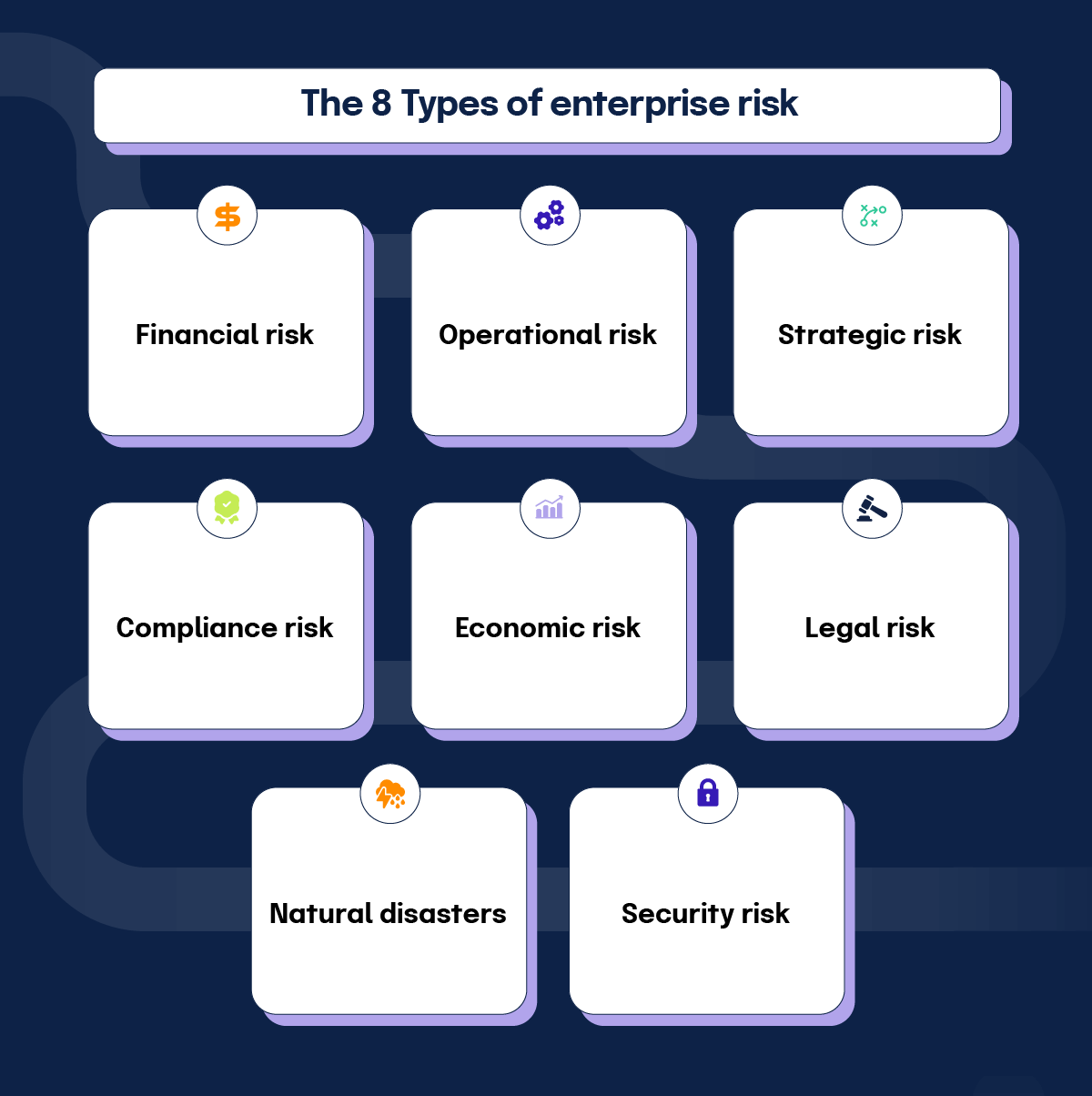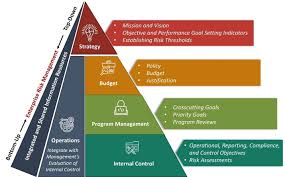Insider threats offer a dependable reference for building secure workflows
Wiki Article
Discover the Duty of AI in Promoting Ethics and Stability to Combat Insider Threats Effectively
The assimilation of AI in organizational frameworks has actually come to be essential in dealing with insider risks. By using sophisticated analytics and real-time monitoring, AI systems can identify inconsistencies from honest habits amongst employees (Insider threats). This aggressive method not just enhances conformity however also cultivates an environment of count on. As companies progressively count on these innovations, concerns occur concerning their effectiveness and possible ramifications for workplace culture. What lies ahead in the advancement of AI's duty in promoting stability?Understanding Insider Risks and Their Influence On Organizations
Although organizations commonly focus on outside threats, expert hazards position a considerable danger that can threaten security and honesty. These risks emerge from people within the company, such as staff members or service providers, that might abuse their access to delicate information for personal gain or harmful intent. The impact of expert threats can be serious, causing economic losses, reputational damage, and legal ramifications.Elements adding to expert threats include frustration with the workplace, lack of oversight, and inadequate worker training on safety and security methods. Organizations usually battle to determine these risks, as they can be challenging to identify till substantial damage has occurred. Avoidance methods must concentrate on cultivating a culture of trust and responsibility, together with applying durable surveillance and reporting systems. By acknowledging and attending to the complexities of expert threats, organizations can enhance their safety and security stance and protect their valuable properties from interior threats.
The Evolution of AI in Workplace Safety And Security
As organizations increasingly confront varied security difficulties, the integration of synthetic intelligence (AI) in workplace safety has actually evolved considerably. AI applications concentrated mostly on automating fundamental protection methods, such as gain access to control and surveillance. Innovations in device discovering and information analytics have actually changed AI right into a positive tool capable of determining possible risks and susceptabilities in real-time.Organizations now utilize AI-driven systems to examine large amounts of information, enabling them to discover strange habits that may indicate expert threats. This advancement has actually resulted in the advancement of sophisticated algorithms that can discover from historical incidents, enhancing the system's predictive capacities. In enhancement, AI tools are progressively utilized to enhance occurrence reaction processes, allowing safety teams to act swiftly and effectively.
Just How AI Monitors Worker Actions for Ethical Compliance
Expert system plays a crucial function in checking worker habits to ensure moral conformity within companies. AI systems assess substantial amounts of data produced by workers, consisting of interactions, purchases, and access to sensitive info. By utilizing sophisticated formulas, these systems can determine discrepancies from developed moral criteria and firm plans.Maker understanding versions continuously adapt to identify patterns of actions that might suggest moral breaches, such as unauthorized information gain access to or uncommon transaction activities. Insider threats. In enhancement, AI-driven tools can supply real-time notifies to monitoring, promoting prompt treatments when potential risks are identified
The integration of AI right into compliance surveillance not only boosts the organization's capability to promote integrity but additionally promotes a culture of liability amongst staff members. By advertising openness, AI systems serve as a deterrent against underhanded behavior, making certain that workers stay lined up with ethical standards and business worths.
Evaluating Patterns: Recognizing Risky Habits With AI
A growing number of organizations are leveraging AI to assess patterns that may show dangerous actions amongst employees. By utilizing innovative algorithms, these systems can sift with substantial amounts of data, identifying abnormalities in individual behavior that can recommend prospective expert risks. AI can identify uncommon gain access to patterns to delicate information, such as staff members accessing data outside their usual extent of job or during atypical hours. Additionally, behavioral analytics can highlight regular modifications in a worker's interaction style or cooperation habits, which may represent underlying issues. This positive strategy enables companies to pinpoint danger factors prior to they escalate into substantial risks. As a result, the integration of AI right into checking techniques not just improves security but additionally fosters a culture of responsibility and moral habits. By determining these patterns, companies can better comprehend the behavior dynamics within their labor force, eventually promoting a more secure and extra moral job environment.
Real-Time Insights: Immediate Feedbacks to Possible Threats
Real-time insights with predictive analytics and automated sharp systems play a crucial role in attending to prospective risks to ethics and integrity. By leveraging these innovations, organizations can expect dangerous actions and respond immediately to minimize threats. This proactive strategy boosts responsibility and fosters a society of stability in numerous atmospheres.Predictive Analytics Applications

Automated Alert Systems
Anticipating analytics offers a structure for companies to improve their responsiveness to ethical issues through automated alert systems. These systems make use of real-time data to keep an eye on tasks, finding abnormalities that might indicate prospective expert threats. By leveraging artificial intelligence formulas, automated informs can determine patterns of behavior that differ developed standards, permitting swift treatment. This immediacy is necessary in mitigating threats related to unethical techniques. In addition, automated alert systems can simplify interaction among relevant stakeholders, making sure that potential dangers are attended to immediately and effectively. As organizations significantly rely upon AI-driven options, the combination of automated sharp systems will certainly play a crucial function in fostering a society of principles and stability, eventually guarding organizational possessions.Promoting a Culture of Depend On Through AI-Driven Transparency
AI-driven transparency can greatly improve count on within companies by promoting accountability and open communication. With real-time monitoring options, stakeholders can obtain insights into procedures and decision-making, fostering a society of stability. Data-driven decision-making better supports this openness, allowing notified options that align with honest criteria.Enhancing Openness and Liability
How can companies properly cultivate a society of trust fund? By boosting transparency and responsibility through the critical usage of synthetic intelligence. AI can help organizations systematically track decision-making processes, making sure that actions align with recognized ethical requirements. This transparency enables employees to see the reasoning behind choices and plans, lowering obscurity and fostering a sense of justness. Additionally, AI-driven tools can promote clear communication regarding assumptions and responsibilities, empowering people to take ownership of their actions. As accountability becomes deep-rooted in the business culture, employees are most likely to take part in moral habits, knowing their activities are checked and evaluated. Ultimately, this technique cultivates an atmosphere where depend on can thrive, significantly mitigating the danger of insider hazards.Real-Time Surveillance Solutions
As organizations progressively look for to foster a society of depend on, real-time monitoring options become an essential device in improving openness. These AI-driven systems continuously track tasks, giving understandings right into user behavior and potential abnormalities that might indicate expert threats. By carrying out such surveillance solutions, companies can proactively identify dangers, making certain punctual actions to dubious activities. This not just safeguards delicate details yet also strengthens a commitment to ethical practices. The clear nature of real-time tracking helps build staff member confidence, as individuals are conscious that their actions are being observed for the greater good. Eventually, these solutions serve to grow a workplace environment based in trust fund, responsibility, and ethical stability, necessary for minimizing expert hazards successfully.
Data-Driven Decision Making
Real-time surveillance solutions prepared for data-driven decision making, which significantly improves organizational transparency. By leveraging AI technologies, organizations can go to this web-site evaluate huge quantities of information to recognize abnormalities and patterns a measure of prospective expert threats. This analytical approach allows stakeholders to make informed choices based in empirical evidence, cultivating a culture of trust amongst staff members. Transparency in decision-making processes, reinforced by AI-driven understandings, urges accountability and moral habits. In addition, it enables companies to proactively deal with susceptabilities, guaranteeing that actions taken are warranted and interacted plainly. As an outcome, the execution of data-driven methods not just minimizes threats related to expert hazards yet additionally reinforces the worths of stability and ethical conduct within the business structure.Future Patterns: The Function of AI in Enhancing Office Ethics
While companies progressively turn to artificial knowledge for operational performance, the potential of AI to improve work environment principles is acquiring prestige. Future fads indicate that AI will certainly play a vital duty in creating ethical frameworks and standards, permitting organizations to navigate complex ethical predicaments. By evaluating large quantities of data, AI can determine patterns of dishonest habits and offer insights that promote openness and accountability.Furthermore, AI-driven tools can help with real-time surveillance of employee communications, guaranteeing adherence to moral standards. This proactive technique not just minimizes expert dangers yet additionally cultivates a society of stability. As companies welcome AI technologies, they must additionally focus on moral shows and algorithmic bias reduction to assure justness.
In this advancing landscape, the assimilation of AI in moral methods represents a transformative shift, cultivating an atmosphere where honesty is not merely expected however systematically reinforced.
Frequently Asked Questions
Just How Does AI Differentiate In Between Benign and Malicious Actions?
AI sets apart in between benign and destructive activities by evaluating patterns in individual habits, employing device understanding algorithms to recognize anomalies, and evaluating contextual information to determine whether actions straighten with well-known standards or display potential dangers.Can AI Tools Replace Human Judgment in Honest Decision-Making?
AI devices can not fully replace human judgment in moral decision-making. While they can evaluate data and determine patterns, the nuanced understanding of context, values, and moral discover here implications still needs human understanding and discernment.What Are the Personal Privacy Ramifications of AI Monitoring Worker Habits?

Exactly How Can Organizations Guarantee AI Algorithms Are Fairly Created?
Organizations can guarantee AI algorithms are ethically designed by implementing clear development processes, including varied stakeholders, performing regular audits, and adhering to well-known ethical frameworks that focus on fairness, responsibility, and respect for customer privacy and civil liberties.What Training Is Needed for Staff to Recognize Ai's Honest Function?
Staff training must encompass fundamental AI values, information personal privacy, and prejudice awareness. Workshops, instance research studies, and interactive sessions can boost understanding, guaranteeing employees acknowledge AI's moral ramifications and its function in cultivating integrity within the organization.
Synthetic intelligence plays an essential function in checking worker habits to assure ethical conformity within organizations. The integration of AI into monitoring practices not only enhances protection but additionally cultivates a society of responsibility and honest behavior. While companies significantly deal with ethical problems and prospective integrity breaches, anticipating analytics applications provide prompt insights that can assist reduce these risks. Anticipating analytics provides a structure for organizations to boost their responsiveness to moral problems through automated sharp systems. Future patterns suggest that AI will certainly play an essential function in developing ethical frameworks and standards, enabling organizations to browse complicated moral predicaments.
Report this wiki page